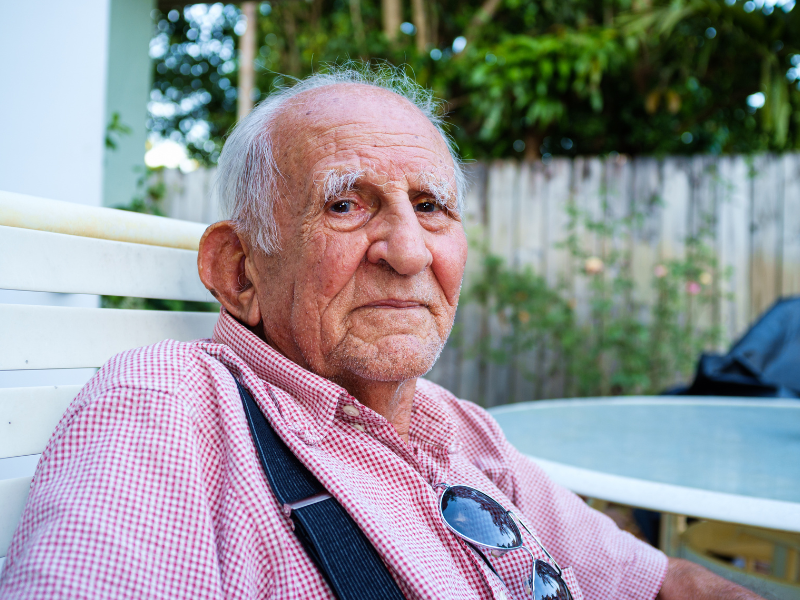When a 92-year-old man was moved to an assisted living facility with his little dog, his family had huge hopes that it would be a good fit for him, and he’d thrive. Unfortunately, that didn’t happen.
The man did well for the first three days, then during the early morning hours of the fourth day, he fell and broke his hip which landed him in the hospital for surgery.
Following the surgery, he was given medication that he was not accustomed to taking, and he suffered physical and mental decline for nearly two weeks. When he was released to go to a rehab facility with skilled nursing capabilities, his oldest daughter held out hope he would be properly cared for. However, within two weeks, she was transporting him from doctor to doctor only to learn he was dehydrated and suffering from a urinary tract infection (UTI).
I tell you this story because Thursday, June 15 was World Elder Abuse Day, and this man has certainly endured levels of neglect, a form of elder abuse, in the skilled nursing facility where he currently resides.
My goal for this month’s blog is to educate you about what elder abuse is, who is at risk, and how we, as a community, can be on the lookout for elder abuse and know what to do if it is suspected a senior is suffering.
What constitutes elder abuse?
In our Home Helpers June newsletter for our caregivers, I explained that elder abuse could span various aspects of neglect or financial exploitation, but there are even more ways the elderly can be mistreated.
According to our neighbors at the City of Chicago Department of Family & Support Services, “In Illinois, elder abuse reports allege financial exploitation; physical abuse; active or passive neglect; and emotional abuse. More often than not, these abuses are targeted at seniors who are no longer able to care for themselves and are unaware that a crime has been committed, such as individuals who suffer from dementia or Alzheimer’s disease. And in most cases, victims are subjected to more than one type of mistreatment.”
The many forms of abuse include:
- Physical abuse
- Sexual abuse
- Confinement/isolation
- Passive neglect
- Deprivation of medical care, food, water, or physical assistance
- Financial exploitation
Our most vulnerable aging adults at risk include persons suffering from:
- Alzheimer’s disease/dementia
- Depression
- Social isolation
- Physical impairment
- Perpetrators with a history of mental illness or substance abuse
The medical implications associated with elder abuse include:
- Sense of helplessness
- Higher risk of skilled nursing facility placement
- Higher risk of mortality
- Suspected higher healthcare costs
Recommended prevention methods include:
- Educating seniors about abuse and subsequent guilt
- Emphasizing the need for in-home care, assisted living or skilled care nursing placement
- Sharing the mortality statistics
- Explaining the higher costs of healthcare
We implore you to be aware of the signs and symptoms of elder abuse! If you suspect someone is at risk of abuse, exploitation, or neglect, contact the Illinois statewide 24-hour Adult Protective Services Hotline: 1-866-800-1409. The hearing and speech impaired should dial Illinois Relay at #711.
June is National Safety Month, also, and keeping seniors safe from elder abuse is incredibly important. If you or a senior loved one could benefit from the assistance of a compassionate caregiver who can provide in-home care services and help with home safety measures, I gladly offer a FREE Assessment to discuss specific needs and ways Home Helpers® can make life easier and safer every day.
Home Helpers® Wheaton & Naperville is proudly Making Life Easier℠ for veterans, differently-abled, and senior men and women in Aurora, Bartlett, Bloomingdale, Hanover Park, Hoffman Estate, Roselle, Itasca, Medinah, Naperville, Plainfield, Schaumburg, Warrenville, West Chicago, Wheaton, and Winfield.
Our team is honored to have received the Home Care Pulse – Best of Home Care® Leader in Experience, Provider of Choice, and the Employer of Choice Awards 2023, as well as the 2022 Super Star Award from Caring.com. Contact our award-winning team today if we can help make life easier for you or a loved one: 630.800.3837
Source:

